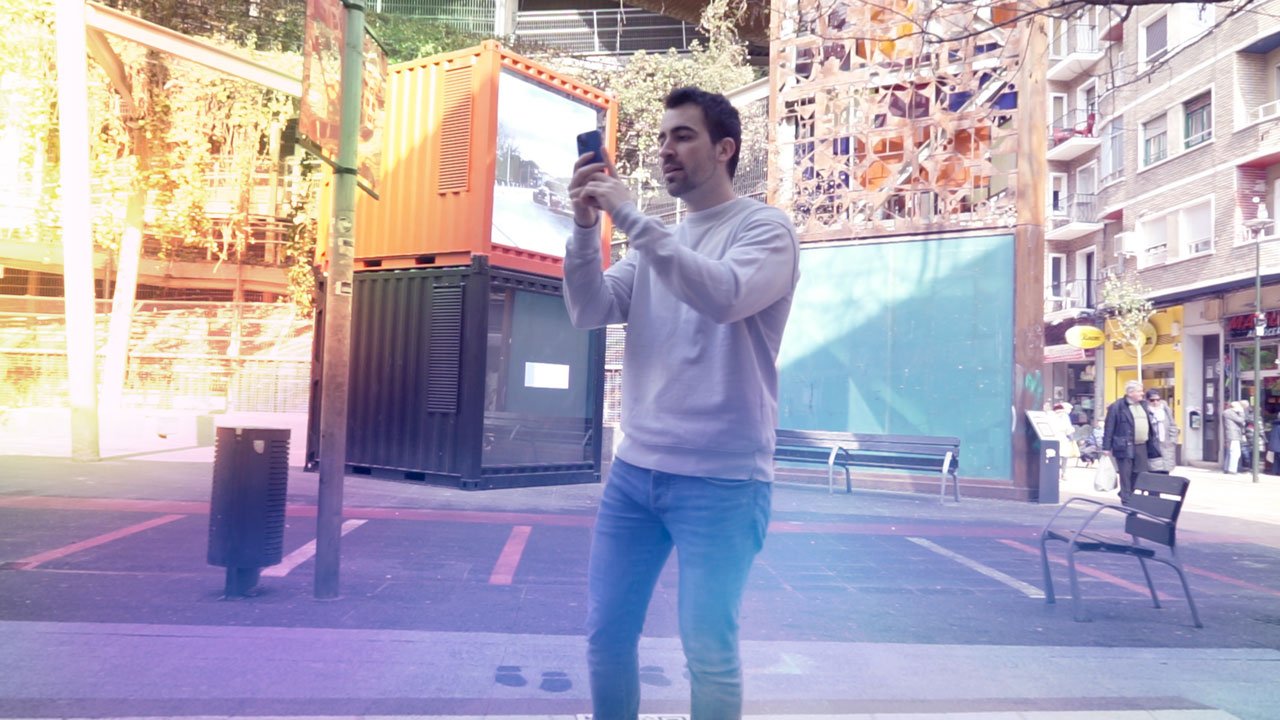Smart destinations, what are they and what are their characteristics?
Smart destinations, what are they and what are their characteristics?
In recent years, the profile of the tourist has changed radically due to the influence of new technologies and digital transformation.
Now, tourists are more likely to be hyperconnectedThey are more demanding, they are more aware of sustainability and the impact on the environment. Above all, they are now looking for tourist destinations that allow them not only to live unique experiences, but also to share them. With fast Internet access and where tourist information is always accessible from the palm of their hand.
This is why tourism companies and areas have launched new and innovative initiatives with respect to information, promotion and development of travel experiences in the tourism sector. Destinations must adapt to this new reality, which is why the great trend of the current tourism industry is born: the destinations
Definition of smart destination
Tourism has been evolving into a complete travel experience, including aspects that range from beyond the tourist offerThe accommodation and specific areas to be visited.
Nowadays, tourist destinations offer a wide range of services, including new ecosystemin which technology plays a key role. For data collection, interaction with users, connection with the full range of tourism services and ease of access to all kinds of information.
This is what smart destinations are all about, tourist areas that can be defined as innovative, accessible and consolidated spaces in a given area. state-of-the-art technological infrastructure that guarantees the sustainable development of the territory. These intelligent tourist destinations facilitate the interaction of the visitor with the environment, where thanks to technological tools such as Artificial Intelligence and WebApp interactive, tourists live a fully personalized travel experience.
You may be interested in → Tourism and technology: characteristics and advantages.
The transformation of destinations to smart destinations involves a attractiveness enhancement of the environment for visitors. Where tourism management, pre-trip planning, its positioning as a quality destination in the minds of travelers and the tourist's own experience are benefited. A smart destination attracts and builds loyalty.
How to become a smart destinationIn addition to applying to join the Intelligent Tourist Destination Network in order to obtain the DTI" sealIn order to achieve this goal, smart destinations must opt for a strategic transformation model based on 5 main axes:
- Governance. A smart tourist destination is one that is committed to public-private cooperation, with shared governance that improves aspects related to mobility, connection, network and urban planning of the tourist area.
- Innovation. The key piece of the digital transformation and intelligent tourism destinations. Not only through the implementation of technology, but also through innovation in services, products and processes.
- Technology. Undoubtedly, technology plays a big role in today's tourism industry. Spaces in the Metaverse, phygital experiences, Augmented Reality routes, virtual tourismThe possibilities are endless: tour guides based on Artificial Intelligence, analysis of travelers' behavior through Big Data... the possibilities are endless.
- Sustainability. In the broadest sense, smart destinations seek environmental sustainability and respect for nature. But they also take into account the socio-cultural sustainability and economic development of the area and its inhabitants.
- Accessibility. For a destination to be considered a smart destination it is essential that it is accessible. Putting the focus on people, regardless of their disability, age, illness or any other reason, can enjoy the tourist experience of visiting this destination.
Main characteristics of smart destinations
Tourist destinations with their own identity, with elements that differentiate them from other places, that guarantee safety, immersion in the travel experience and both social and environmental sustainability, will be smart tourist destinations with a great advantage over the competition.Below, we review the main characteristics of these destinations:
Universal accessibility
Universal accessibility, both to digital as well as physical levelis one of the main characteristics of smart destinations.
Destinations that take the traveler/visitor into account: their your needs, your expectations, your preferences and your feedback.. They are destinations that seek continuous improvement, offering the best possible travel experience. As in the case of LOARRE XRan initiative of Itainnova that seeks to offer a new technological and accessible experience to visit the Loarre Castle.
Innovation and advanced technology
Undoubtedly, if there is one thing that characterizes smart destinations, it is their commitment to innovation and technology. In today's tourism industry, travelers are looking for a travel experience based on digitization, in personalization and making the journey unforgettable. To do this, destinations must have a strong technological infrastructure and interactive experiences that attract and positively impact users.
From offering personalized guides that are always available to respond to any need, to digitized museums to take the visit to the next level. As in the Rafa Nadal Museum in Manacor, where visitors are the protagonists of the visit through the phygital experiences of the exhibition.
If you are interested, you can learn more about this topic at Augmented Reality in Museums.
Improved quality of life
Smart tourism destinations not only have a impact on tourist visitsThe city's inhabitants' day-to-day life is also a part of it.
A commitment to the DTI positively affects the city's transportation, access to cultural and artistic information in the area, a digitalization of its restaurants and entertainment areas. And, of course, high-speed web access and connection throughout the city. Different actions that improve the quality of the tourist trip and also the quality of life of the local people.
An example of this improvement in the quality of life can be found in the project Commercial Walks of the Zaragoza City Council. Where, through new Augmented Reality experiences and other immersive technologiesThe aim is to attract both neighbors and visitors to the commercial areas of the different neighborhoods of the city.
Benefits of DTI
The concept of a smart destination is closely linked to the concept of Smart CitiesBoth are characterized by a complete digital transformation of the environment and/or city.
A Smart City, as an intelligent tourist destination, seeks an efficient balance and integration between people, institutions, technology y sustainability. Seeking to obtain data and feedback in real time that allows the city to adapt to the real and specific needs of its citizens. From traffic to information totems, through security, air quality control and crowd control.
In this section we review some of the main benefits of the transformation of destinations into smart destinations (DTI):
Improved competitiveness
Intelligent tourist destinations improve competitiveness of tourist areas in all phases of the trip, from travelers' inspiration and decision making to shared memories and satisfaction.
The hyperconnectivity and the personalization of the travel experience make tourists feel more secure and connected to the tourist area. Being able to interact at all times with the information of the destination and its services (hotels, restaurants, museums, guided tours, information points, added services...). In addition, these interactions offer great information to the tourist services about the real needs of tourists, helping in the reception of high quality feedback.
Social and environmental benefits
Smart destinations are not only looking to take advantage of technology, they are also looking to become sustainable tourism destinations, controlling and improving their social and environmental impact.
To this end, many of the initiatives and lines of action of smart destinations have as their objectives to respect for the environment and natural resources, sustainability and impact on the local population.
Air quality measurement, capacity control in nature destinations, real time monitoring of the fauna and flora of a natural site and the commitment to the promotion of local commerce are some of the proposals already developed in different intelligent tourist destinations in our country.
Full technological integration
The tourism sector is one of the main industries most impacted by new technologies. Full technological integration gives the option of develop interactive experiences that allow visitors to have greater control of their travel experience. Such as personalized guides based on Artificial Intelligence or Augmented Reality tours that allow, for example, to travel back in time and reconstruct monuments.
You may be interested in→ Augmented Reality applications in tourism.
But also, technological integration allows the tourist destination to have greater sources of information on the needs and behaviors of touristswhere, thanks to webapps, it is possible to obtain dashboards and advanced analytics in real time.
Surprising smart tourist destinations in Spain
Spain is undoubtedly one of the world's leading tourist destinations and one of the first in the world in integrating smart destination strategies in its different regions.
This is not only due to the implementation of the DIT sealThe main reason for this is the commitment of tourism companies, hotel lines and public administrations to develop strategies that put the accessibilitythe sustainability and the technological innovation, among the main objectives. Here are some examples:
- LOARRE XR developed by Itainnova to visit the medieval castle which is difficult to access from anywhere thanks to the development of an accessible virtual tour with Extended Reality.
- A smart tourist destination that stands out not only in Spain, but also at European level is the Virtual Flower Offering. A 3D space of the Metaverse of Zaragoza which transfers the culture and tradition of the city to the virtual world. All to make its festivities more accessible and to promote the city as an innovative tourist destination.
- In terms of accessibility, the Virtual Reality experience also stands out. Frozen Emotion developed by Ibercaja Xplora for virtual skiing through the Aragonese Pyrenees. Through a fully immersive 3D environment, users can enjoy an adrenaline-filled adventure with just a pair of VR glasses.
The smart destinations are the future of the industry. The commitment to sustainability, accessibility, collaboration and technology opens up a new range of possibilities to transform the tourism sector with new and surprising travel proposals.
At Imascono we know that these proposals must surprise and delight usersand reduce their environmental impact. This is why immersive experiences play a key role in the evolution of tourism. We have more than 12 years of experience in the development of impactful experiences based on Extended Reality, Metaverse and Artificial Intelligence focused on tourism. Contact with us and find out how we can help you take the step towards become a smart tourist destination.




